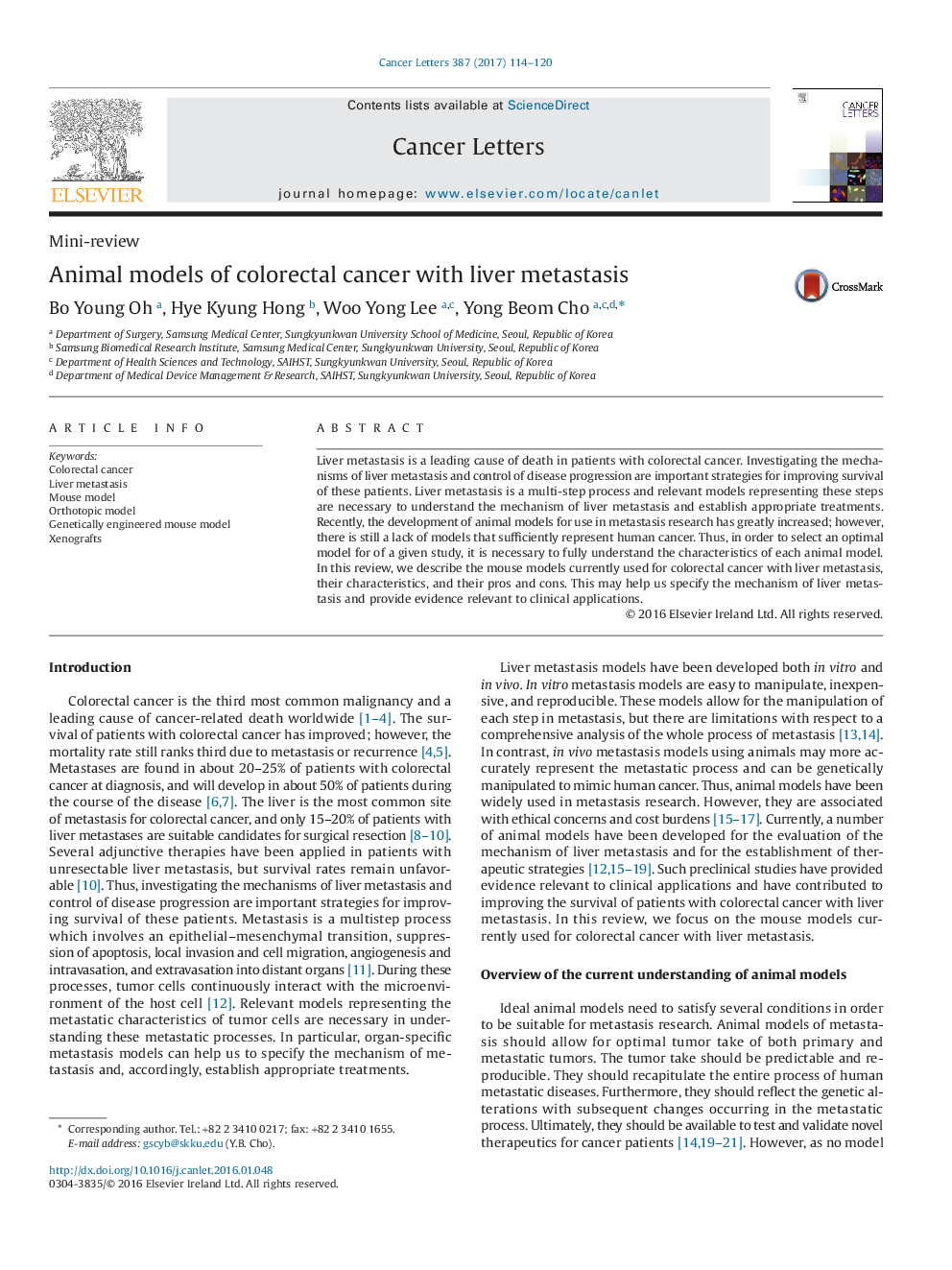| کد مقاله | کد نشریه | سال انتشار | مقاله انگلیسی | نسخه تمام متن |
|---|---|---|---|---|
| 5525445 | 1546682 | 2017 | 7 صفحه PDF | دانلود رایگان |
- No animal model is fully representative of metastasis in human cancer.
- Spontaneous liver metastasis models represent all steps of metastasis.
- Experimental liver metastasis models are highly reproducible and consistent.
- PDX models are useful for predicting patient-specific drug response.
- GEMMs represent the natural course of cancer, but liver metastases seldom develop.
Liver metastasis is a leading cause of death in patients with colorectal cancer. Investigating the mechanisms of liver metastasis and control of disease progression are important strategies for improving survival of these patients. Liver metastasis is a multi-step process and relevant models representing these steps are necessary to understand the mechanism of liver metastasis and establish appropriate treatments. Recently, the development of animal models for use in metastasis research has greatly increased; however, there is still a lack of models that sufficiently represent human cancer. Thus, in order to select an optimal model for of a given study, it is necessary to fully understand the characteristics of each animal model. In this review, we describe the mouse models currently used for colorectal cancer with liver metastasis, their characteristics, and their pros and cons. This may help us specify the mechanism of liver metastasis and provide evidence relevant to clinical applications.
Journal: Cancer Letters - Volume 387, 28 February 2017, Pages 114-120
